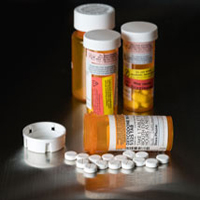CDC Reports: Opioid Overdoses
January 13, 2019 According to the Centers for Disease Control and Prevention (CDC), there were more than 70,000 drug overdose deaths in 2017 – and the agency says synthetic opioids (e.g. Fentanyl) were involved in nearly 50,000 of them. Even more horrifying is that the number of opioid-related drug overdoses continues to grow, and Pennsylvania was one of twenty-three states across the country that experienced a significant increase in drug overdose death rates between 2016 and 2017.
According to the Centers for Disease Control and Prevention (CDC), there were more than 70,000 drug overdose deaths in 2017 – and the agency says synthetic opioids (e.g. Fentanyl) were involved in nearly 50,000 of them. Even more horrifying is that the number of opioid-related drug overdoses continues to grow, and Pennsylvania was one of twenty-three states across the country that experienced a significant increase in drug overdose death rates between 2016 and 2017.
What are Synthetic Opioids?
The Drug Policy Alliance (DPA) reports that synthetic opioids are a category of novel psychoactive substances, or NPS – these are substances that do not occur on their own naturally. In plain terms, synthetic opioids are man-made. There are many different synthetic opioids out there, but one of the most commonly known ones is Fentanyl. Fentanyl is a strong and potentially deadly drug; it was intended to be used exclusively for surgical procedures until fairly recently (1990s).
The National Institute on Drug Abuse, or NIDA, confirmed that Fentanyl passed prescription opioids as the most common drug involved in overdose deaths in the U.S. in 2016. Whereas synthetic opioids were involved in more than 50% of all overdose deaths in 2016, in 2010 they were only involved in about 14%.
Quick Facts on Fentanyl
Fentanyl is at least fifty times more potent than heroin, and can be prescribed in numerous forms. Fentanyl is prescribed as transdermal patches, tablets, nasal sprays, and lozenges. Similarly to other drugs, Fentanyl can also be manufactured illegally (this version of the drug is called a “Fentanyl analog”). Because it is so strong, people who have never taken Fentanyl before or who only use non-opioid drugs are even more likely to overdose on it.
Other Dangerous Drugs
The CDC also investigates other drugs with abuse potential (known as “psychostimulants”), such as:
- Methamphetamine;
- Ecstasy;
- Prescription stimulants (e.g. drugs used to treat attention deficit hyperactivity disorder), and:
- Cocaine
More Americans are dying from drug overdoses that involve psyschostimulants with the potential for abuse, such as the drugs listed above. Altogether, the rate of overdose deaths that involve psychostimulants has increased by approximately one-third.
The Dangers of Fentanyl Contamination
Another dangerous trend that the CDC is observing is the contamination of other drugs with Fentanyl. The agency has found Fentanyl in a range of other drugs identified in overdose deaths, like heroin, methamphetamine, cocaine, and even counterfeit opioid pills. When individuals unknowingly ingest Fentanyl or take it in combination with other dangerous drugs, it increases the likelihood for a deadly drug overdose.
How to Find Help
Because so many states are experiencing significant rates of growth of opioid-related overdose deaths, many are putting together resources to help individuals and families in need. In the state of Pennsylvania, Governor Tom Wolf signed a statewide disaster declaration in early 2018. The declaration aims to fight against the opioid and heroin epidemic, as well as to create more treatment and life-saving options for residents across the state.
Sometimes healthcare professionals prescribe medications with the potential for abuse to patients when it is not appropriate to do so. Not only can this cause unsuspecting patients to develop drug dependence, but it can also lead to injury or death. If you have questions about being prescribed controlled substances or other medications by your doctor, please contact a representative at our firm who can help.
Philadelphia Personal Injury Lawyers at Galfand Berger, LLP Representing Injured Individuals Since 1947
If you were a victim of medical negligence and developed an opioid addiction as a result of an overprescribing doctor, we are happy to answer your questions. Our Philadelphia personal injury lawyers at Galfand Berger will review your case for free. With offices located in Philadelphia, Bethlehem, Lancaster, and Reading, we serve clients throughout Pennsylvania and New Jersey. To schedule a consultation, call us at 800-222-8792 or complete our online contact form.
 Google Screened
Google Screened
